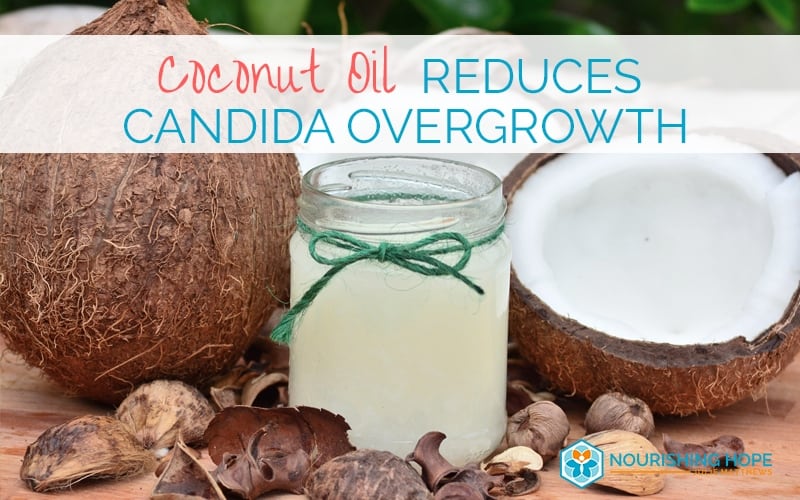Nutrition Research Review
A study out of Tufts University found that coconut oil effectively controlled the overgrowth of Candida albicans (C. albicans) in mice. The research suggests the possibility of using coconut oil as an effective dietary approaches and an alternative to antifungal drugs in order to decrease the risk of infections caused by C. albicans.
The paper points out that high levels of C. albicans in the gastrointestinal tract can lead to systemic infections, with a mortality rate of approximately 40%. Because of this high rate of serious health effects, it’s important to find ways to reduce colonization.
It has been know coconut oil and its fatty acids components have antifungal activity in vitro (outside of the body, i.e. in a test tube).
In the study, coconut oil reduced preexisting colonization of C. albicans. This was true even when the diet also contained other fats such as beef tallow. Equally exciting, dietary coconut oil altered the metabolic program of colonizing C. albicans cells through the expression of genes involved in fatty acid utilization, which was lower in C. albicans from coconut oil-fed mice than in C. albicans from beef tallow-fed mice.
Researchers extrapolated these findings in mice to humans, and postulated “coconut oil could become the first dietary intervention to reduce C. albicans GI colonization.”
This is very important research for all individuals with C. albicans overgrowth, and for children with autism where candida is more common. Coconut oil is a simple food based strategy to help support improved gut health.
Research citation: Carol Kumamoto et al. Manipulation of Host Diet To Reduce Gastrointestinal Colonization by the Opportunistic Pathogen Candida albicans. mSphere, November 2015 DOI: 10.1128/mSphere.00020-15





0 Comments